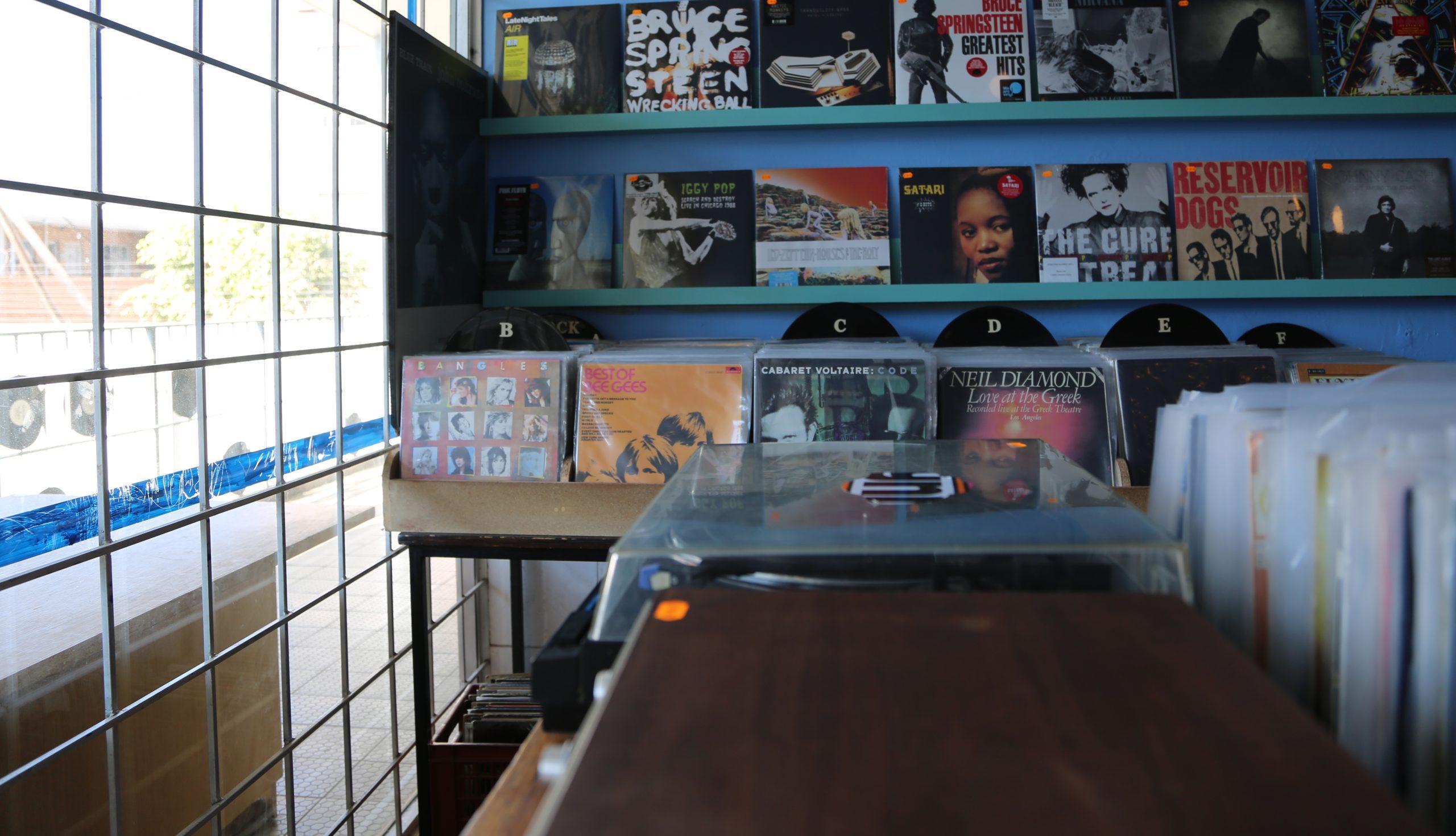Johannesburg, South Africa – In South Africa, as in the U.S., vinyl is making a comeback, especially evident to the owners of local record shops and to musicians in Johannesburg.
“Vinyl went quiet, but it never really disappeared,” said Bret Dugmore, owner of Mr. Vinyl, one of Johannesburg’s largest record shops. “Ironically, maybe CD’s were just a fad.”
Kevin Stuart, owner of Record Mad in the Linden neighborhood of Johannesburg, said he has watched vinyl making its comeback in South Africa since he first opened his store in 2012.
“When I first opened my shop six years ago, it was really just a bunch of hard-headed vinyl types who refused to move on,” Stuart said. “Within about two years of opening this store, the whole focus changed. A lot of young people started getting into records, which I attribute to the older generation moving on.”

Record Mad sells mostly second-hand records to appeal to price-conscious buyers and collectors, Stuart said. New records are expensive, ranging anywhere from $50 to $80 (about 600 to 1,000 South Africa Rands). Rare records can cost upwards of $100, or R1,370 rands – a lot of money, even to avid vinyl fans.
Record shops throughout South Africa also struggle to compete with online prices and sales from distributors, such as Disclose, eBay and Amazon.
“We probably hit the zenith about three years ago,” said Stuart. “I mean the problem is that we’re always up against the online stores and the convenience of being able to be at work and being able to order a record online, not having to come into the record store.”
The cost of a vinyl record is heavily dependent on its novelty, value and the amount it costs to import it into the country. According to Bret Dugmore, of Mr. Vinyl, records are not manufactured in South Africa, but are imported primarily from the U.S. or Europe, specifically the Czech Republic, Germany or Holland. Pressing plants on the African continent have been extinct since the 90’s, Dugmore said.
“The problem is, if you were to sit down and look at a world map and you look at where pressing plants are in the world, South Africa is literally the furthest location out of anywhere,” Dugmore said. “The other problem, if you’re going to go down the second-hand vinyl route, is there are a lot of collectable South African music, which international collectors are very keen on. As a result, that demand drives prices upwards.”
Charles Leonard, a popular Johannesburg-based DJ, is one of those record collectors who is constantly on the hunt for new “old” vinyl. Leonard began collecting records when he was just 6 years old. He received his first record, “Congratulations” by Cliff Richards, as a gift from his older brother. After 50 years of collecting, Leonard said he owns more vinyl records than he can count. He said owning records on vinyl sounds better, feels better, and makes you look cooler than simply listening to music online.
“I don’t feel like I own it unless I’ve got it on vinyl,” Leonard said.
For store owners, collectors and musicians alike, having a record on vinyl means more than just owning a soundtrack. It provides a sense of nostalgia and tangibility.

“A lot of people walk in, and they suddenly find an OMD record or a Queen record and, you know, it’s a bit of a flashback,” Stuart said. “They are able to take that little piece of nostalgia home with them for 60 bucks or 80 bucks.”
For Dugmore, that nostalgia is an important part of the experience of owning records.
“It’s so cool to give space to things in your life and it’s cool to collect something that’s authentically vintage. It’s a 12-inch-by-12-inch work of art.”
According to Leonard, artists are capitalizing on that nostalgia market, citing vinyl releases by contemporary pop music singer-songwriter, Ed Sheeran, and Jack White of the alternative rock band, The White Stripes.
“If you don’t have your album on vinyl you are lacking in coolness,” Leonard said.















































